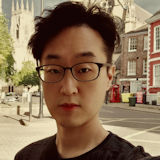Young-Gil Kim

PhD Researcher – Formal-Informal Institutional Relationships, Subsequent Processes, and Different Outcomes: Addressing a Problem of Competing Claims to Land in Dili and Ainaro District, Timor-Leste
Mr Young-Gil Kim served as a foreign aid worker for the South Korean government aid agency over an 8 year period, as part of this he experienced being an expatriate in Timor-Leste for over a year. This provided invaluable opportunities to work with diverse entities such as UN agencies and international NGOs. During this time Young-Gil Kim became interested in, and wanted to explore, whether liberal peace/foreign aid/or anything born in the western donor society works well, and so he started his new journey in academia.
This starts from the UN’s liberal peace mission. During a post-conflict era, the UN conducts a peace mission, which introduces four main tenets (human rights, the rule of law, a market-oriented economy, and democracy) in a war-torn society by establishing and strengthening formal institutions. However, the result of this liberal peace is often at odds with what it promises to deliver. According to recent empirical studies, informal institutions, which can be briefly defined as those outside the state/government, as well as their relationships with formal institutions are currently thought to play a more important role in governing many aspects of people’s everyday lives.
In keeping with this, Young-Gil Kim is exploring how the problem of competing claims to land is addressed in Timor-Leste today with a focus on formal-informal institutional relationships, processes of problem solving in the different institutional settings, and possible different outcomes. He compares Dili district where the presence of formal institutions is strong and Ainaro district where other informal institutions such as customary institutions are influential. He describes and categorises different types of formal-informal institutional relationship types, and analyses their effects on the processes and outcomes of problem solving. As a consequence, instead of wishing that one day formal institutions established and strengthened by the UN can be as effective in their operations as those in the developed world, he hopes to find better institutional relationship types, which could lead to practically better processes and better outcomes of the problem solving during the post-conflict era.
Contact us
Interdisciplinary Global Development Centre
igdc@york.ac.uk
01904 323716
Department of Politics and International Relations, University of York, Heslington, York, YO10 5DD, UK
Twitter
Young-Gil Kim
yk800@york.ac.uk
Young-Gil Kim
Contact us
Interdisciplinary Global Development Centre
igdc@york.ac.uk
01904 323716
Department of Politics and International Relations, University of York, Heslington, York, YO10 5DD, UK
Twitter
Young-Gil Kim
yk800@york.ac.uk